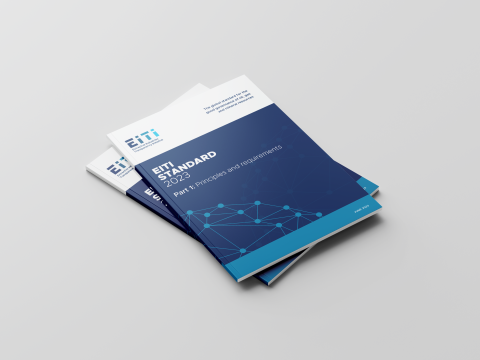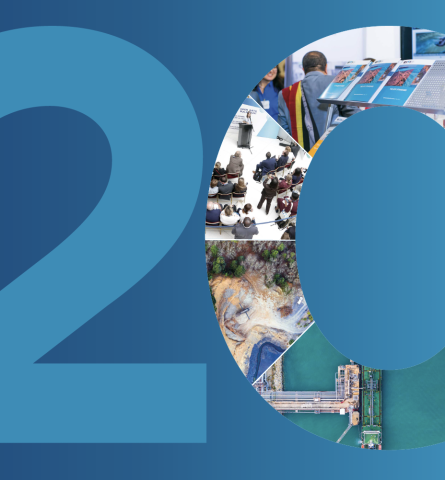
EITI implementing countries are increasingly making the information required by the EITI Standard available through government and corporate reporting systems (databases, websites, annual reports, portals etc). The International Secretariat encourages and recognises these efforts to mainstream the EITI into government structures and make transparency an integral part of how governments manage the sector.
In Asia, several implementing countries have made real progress in this journey. Kazakhstan has for several years made use of the existing online tax reporting system for their EITI Reports. Here are three case studies showing how other countries in the region are taking this work forward:
Business as usual in Timor-Leste
Having launched its government Transparency Portal in 2011, Timor-Leste could be considered a mainstreaming pioneer. The portal discloses up-to-date data on the government’s finances, including information on the national budget such as revenues, remaining balance and expenditures. In addition, websites of government agencies like the Autoridade Nacional do Petróleo e Minerais (ANPM) disclose on a monthly basis all revenues from the petroleum sector as well as production data by field of operations. State-owned enterprise Timor Gap publicly discloses its annual report containing information on its participation in extractive operations, as well as its financial statements including operational expenses, assets and liabilities.
The Central Bank website contains monthly information on the status and performance of the Timor-Leste Petroleum Fund. This enables policy makers, civil society and the wider public to regularly monitor the status of the fund and demand accountability from parliament with regard to how the fund is managed and expenses are allocated.
TL EITI plans to follow Kazakhstan with their future EITI Reports and simply link to the sources listed above with key figures and summaries.
Prospects for mainstreaming in the Kyrgyz Republic
In the Kyrgyz Republic, the usual practice for EITI reporting has been to collect hard-copy data templates from companies and government entities and reconcile the figures. Stakeholders consider this process both costly and bureaucratic. At the same time, the government in 2012 launched an online Open Budget Portal, which discloses data on revenues and expenditures in national and local budgets. The portal shows what government receives from all registered companies in the country, including those from extractive industries. The portal also breaks down total government revenues into regions and expenditures by different government entities. For instance, one can see how much the State Committee on Industry, Energy and Subsoil has been spending on the salaries of its employees in 2016. The data is updated on a monthly basis. The Kyrgyz Republic is now assessing the feasibility of making use of this system for future EITI reports. Mainstreaming EITI in the Kyrgyz Republic would not only reduce costs for producing reports, but would also strengthen the government’s accountability and raise trust among the citizens.
From thousands of pages to one online portal: Mongolia
Having expanded its EITI reporting from 25 companies in the 2006 EITI Report to 988 in the 2014 EITI Report, and with the size of EITI Reports expanding to beyond a thousand pages a year, Mongolia took the wise decision to move reporting online and is seeking ways of integrating disclosures of EITI-required information into routine government disclosures. Mongolia’s data efforts first focused on EITI reporting before integrating existing government information. From March 2015 all EITI-reporting companies began filing their reports online through the EITI Mongolia’s eReporting platform with the pre-reconciled information available immediately. The information was transferred to EITI Mongolia’s data portal in 2016, which also integrated licence information from Mongolia’s cadastre and production data from the Mineral Resources Authority (MRAM) into a Google Maps user interface. The data portal’s second phase to end-2016 is establishing an automatic exchange of tax revenue information with the General Department of Taxation.
There is scope to expand integration efforts to other sources of publicly-available and reliable information. Several websites provide timely information on subnational transfers to aimags (provinces) and soums (districts), both budgeted and executed, on which EITI implementation could add value by reconciling subnational transfers with actual subnational government’s receipts. The government’s Glass Accounts website provides access to budget, investment, tender, stock and spending information from about 6088 government offices, including the Office of the President, the State Great Khural (Parliament), Cabinet, state agencies, local budget-funded organisations and state-owned companies. Meanwhile, ongoing reforms, including donor-supported reforms of the state asset-holding vehicle, Erdenes Mongol, present opportunities for linking EITI mainstreaming efforts to national reforms and integrating EITI reporting into routine company systems. Mongolia’s work on GFS classification of extractives revenues through production of summary data tables has not only supported engaging data visualisations, but also highlights how EITI implementation can help structure and support the country’s open data and mainstreaming efforts.



